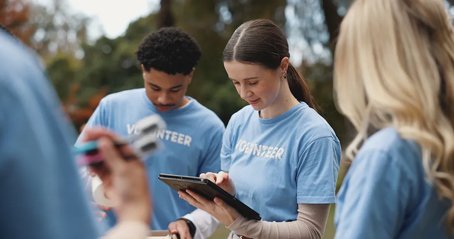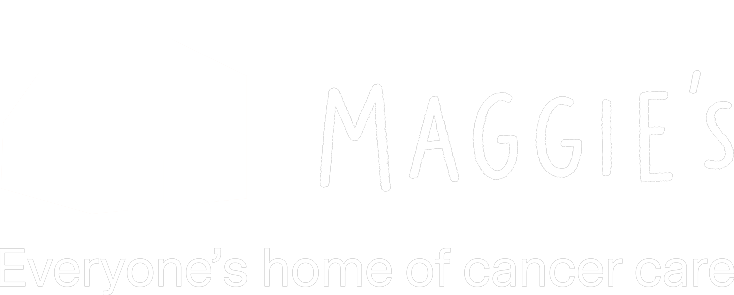Why Should Charities Choose Django CMS 4 for their Website?

Your charity’s website is more than an information hub, it’s where supporters connect with your cause, beneficiaries access vital services, and communities come together. That makes your website one of your most important digital assets. The foundation of that website, your content management system (CMS), shapes everything from accessibility and performance to flexibility and future growth.
Drawing on our experience building websites for charities, we’ve seen Django CMS 4 emerge as one of the most effective, future-proof platforms available today.
What is Django CMS and why is version 4 so important?
Django CMS is a free, open-source CMS built on the Django web framework - the same framework used by global organisations like NASA, YouTube and Spotify. It’s known for security, performance, and flexibility.
Version 4 is the platform’s most significant update in over a decade. It introduces a modern editing experience built to grow with you.
For charities, this means more control, fewer limitations, and a platform that can evolve with changing digital strategies.
Key updates in Django CMS 4
1- A redesigned admin interface for charity teams
The new admin interface in Django CMS 4 is clean, responsive, and intuitive. Built with workflows in mind, it offers:
- Drag-and-drop page building with immediate visual feedback
- Responsive editing across devices
- Simple, low-barrier content editing with no technical training required
This helps non-technical teams to manage content independently, reducing bottlenecks and increasing digital agility.
2- Improved speed and scalability
Django CMS 4 delivers faster, smoother experiences for your users, including:
- Faster page loading for supporters and service users
- Lower server costs
- Improved SEO and Core Web Vitals scores
Whether you’re launching a major appeal, supporting a fast-growing community, or managing years of valuable content, the platform is designed to scale without compromising performance.
3- Stronger accessibility and SEO and laying the foundations for AIO, AEO & GEO
Django CMS 4 provides a clean base for accessible, standards-compliant websites, including:
- WCAG 2.2 AA readiness (when developed with accessibility in mind)
- Semantic markup, clean URLs, and metadata control
- Structured data support for search engines
It also supports evolving optimisation practices such as AI Optimisation (AIO), Answer Engine Optimisation (AEO) and Generative Engine Optimisation (GEO), ensuring content remains visible as AI-driven search becomes more common.
4- Flexibility for AI and emerging technologies
As artificial intelligence becomes a practical tool for content creation, personalisation, and supporter engagement, charity websites need to be built on platforms that are flexible and integration-friendly.
Django CMS 4 is built on the Django web framework, one of the most popular choices for modern AI, machine learning, and natural language processing applications. This means:
- You can integrate AI tools (like OpenAI, Claude, or custom LLMs) for content suggestions, chatbots, or donor insights
- The CMS can support automated content tagging, AI-driven search, or personalised user journeys
- Django’s robust API ecosystem makes it easy to connect to external AI platforms or develop your own machine-learning models
For charities exploring AI, Django CMS 4 offers a secure and flexible foundation that won’t limit experimentation or adoption in the future.
5- Inclusive design capabilities
Every visitor to your site matters, whether they’re a long-time supporter or someone seeking help for the first time. Django CMS 4 enables developers to deliver accessible websites by default, with features such as semantic HTML, ARIA roles, full keyboard navigation, and screen reader compatibility.
When implemented with accessibility best practices, it supports truly inclusive digital spaces.
6- Advanced workflows for multi-stakeholder teams
Charity websites often involve multiple contributors, such as fundraisers, service leads, digital officers, and external partners. Django CMS 4 supports advanced content workflows and permissions to manage this complexity.
Features include:
- Draft and publish modes
- Role-based permissions (e.g. specified teams can edit but not publish)
- Scheduled publishing for timed campaigns or events
These features help keep content accurate, timely, and aligned with organisational governance.
How does Django CMS 4 compare to other CMS platforms?
What makes Django CMS 4 better than WordPress?
WordPress is popular and widely understood, but often relies on dozens of third-party plugins for basic functionality. This can lead to:
- Security vulnerabilities
- Slower site performance
- High maintenance costs
Django CMS 4 offers:
- A leaner, more secure architecture
- Custom functionality built into the core product
- Fewer moving parts to maintain
For charities looking for long-term stability and scalability, Django CMS 4 is a better choice, particularly when working with sensitive data or complex integrations.
Why choose Django CMS 4 over Drupal?
Drupal is powerful and modular but comes with a steep learning curve and heavier infrastructure.
Django CMS 4:
- Is easier to use for non-technical content editors
- Delivers faster performance out of the box
- Requires less developer effort for routine tasks
For charities without large in-house technical teams, Django CMS 4 offers a better balance between flexibility and usability.
How does Django CMS 4 compare to Umbraco?
Umbraco, built on .NET, is popular with organisations already committed to Microsoft technologies. However:
- It often requires Windows-based infrastructure
- Licensing and hosting can be more expensive
- Customisation can be limited without enterprise upgrades
Django CMS 4 is:
- Fully open-source and license-free
- Flexible for Linux, cloud, or container-based hosting
- Ideal for agile development and integration with modern data platforms
For charities looking to avoid tech stack lock-in, Django CMS offers greater long-term freedom.
Is Django CMS 4 a stronger option than Craft CMS?
Craft CMS is a modern PHP-based CMS known for developer flexibility and beautiful UI, but it requires commercial licensing for core features.
Django CMS 4 delivers similar customisability but:
- Has no licensing fees
- Offers more robust support for complex content workflows
- Is backed by the Django ecosystem, one of the most secure, scalable frameworks available
For charities needing powerful features without recurring costs, Django CMS 4 is often a better investment.
Which types of charities benefit most from Django CMS 4?
Django CMS 4 is ideal for charities that need:
- Multisite or multilingual support
- Complex content structures (e.g. multi-service organisations)
- High levels of control and governance over who edits what
- Custom integrations with donation platforms, CRMs, or supporter databases
- A future-proof website that will scale with your organisation
From large national organisations to frontline service providers, Django CMS 4 can adapt to diverse digital needs.
Is Django CMS 4 the right CMS for your charity website?
Choosing the right CMS is a strategic decision for charities. Django CMS 4 provides the balance of usability, performance, and scalability needed to support today’s priorities while preparing for tomorrow’s opportunities.
At Giant Digital, we’ve seen first-hand how Django CMS 4 helps charities deliver secure, accessible and future-ready websites. If your current CMS feels restrictive or outdated, exploring Django CMS 4 could open new possibilities for your organisation’s digital journey.
Ready to explore Django CMS 4 for your charity?
See how Django CMS 4 can transform your digital presence. Get in touch to request a tailored demo or speak to our team about how it could work for your organisation.





